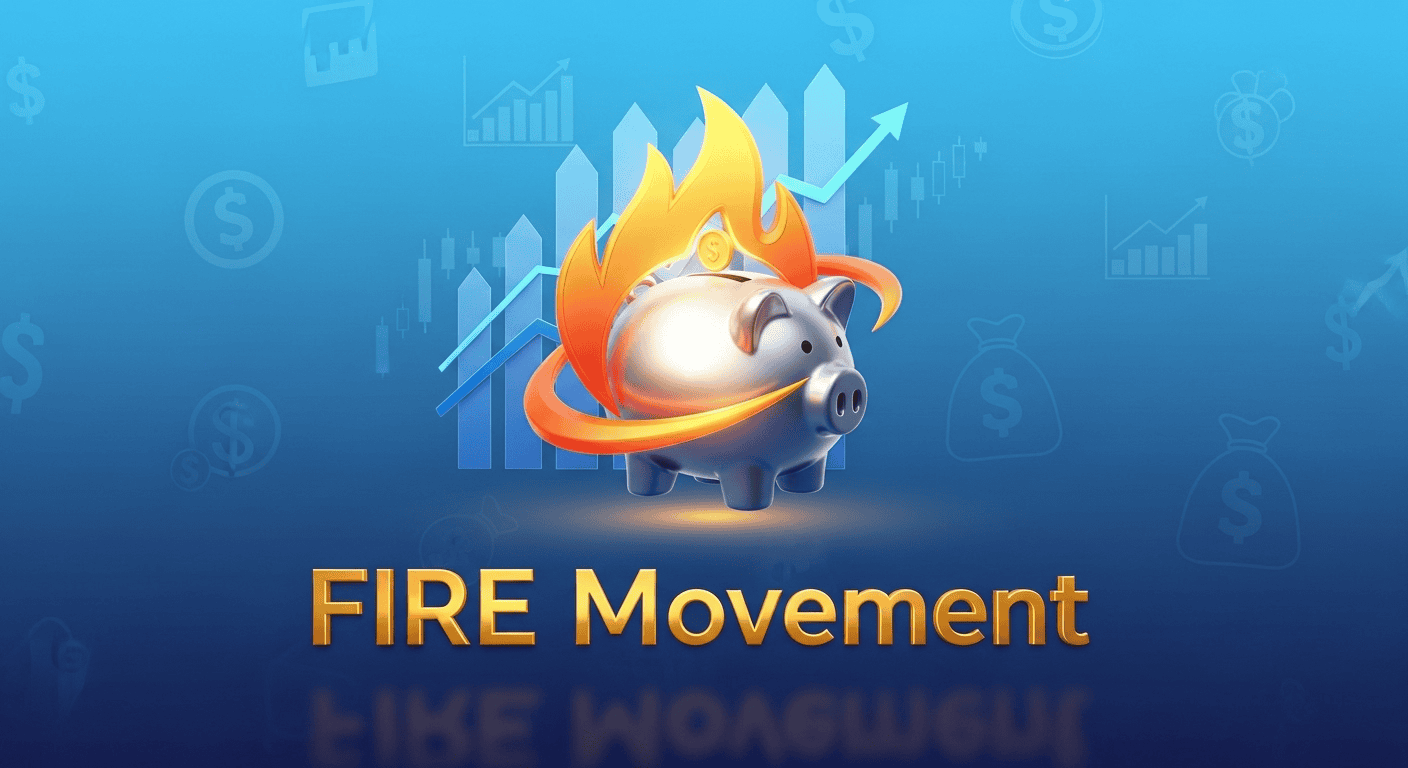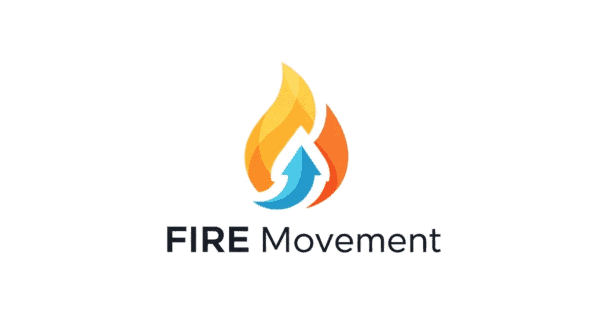🚀 Introduction to the FIRE Movement
What is the FIRE Movement?
FIRE stands for Financial Independence, Retire Early. It’s a lifestyle and financial strategy designed to help individuals gain control of their time and money. The basic idea? Save aggressively, invest wisely, and retire way earlier than the traditional 60+ benchmark. Think 35 or even 30.
Origins and Popularity
The FIRE movement traces its roots back to the 1990s, sparked by books like Your Money or Your Life by Vicki Robin and Joe Dominguez. But it really exploded after the 2008 financial crisis, as more people realized that the conventional “work-40-years-then-retire” plan wasn’t working.
Why FIRE is More Relevant Today Than Ever
With rising living costs, economic uncertainty, and growing dissatisfaction with 9-to-5 jobs, more people—especially millennials and Gen Z—are embracing FIRE as a way to reclaim control of their futures.
💡 Core Concepts of the FIRE Movement
Financial Independence (FI)
What it Means and Why It Matters
Financial Independence means having enough savings and investments to cover your living expenses without needing a full-time job. It’s not just about quitting work—it’s about having freedom of choice.
Early Retirement (RE)
Debunking Myths Around Early Retirement
People often assume early retirees lounge on beaches all day. In reality, many start passion projects, freelance, travel, or volunteer. It’s retiring from obligation, not from purpose.
📚 Different Types of FIRE
Fat FIRE
Living luxuriously post-retirement. You save more, invest heavily, and enjoy a high standard of living without working.
Lean FIRE
A minimalist version. You live frugally and retire early on a modest budget.
Barista FIRE
You reach partial FI and take up part-time or low-stress work to supplement your lifestyle.
Coast FIRE
You save aggressively early on, then let compounding grow your wealth while you just “coast” with low income until full retirement.
💸 Key Principles of the FIRE Lifestyle
Extreme Saving
Most FIRE followers save 50-70% of their income. Yes, that’s intense—but it’s how they reach FI fast.
Smart Investing
Rather than hoarding cash, FIRE folks invest in low-cost index funds, real estate, and side businesses.
Living Below Your Means
It’s not about deprivation—it’s about intentional spending. Cut out the junk. Keep what brings joy.
Avoiding Lifestyle Inflation
Got a raise? Great. Don’t upgrade your car. Upgrade your future freedom.
🛠 How to Start Your FIRE Movement Journey
Calculate Your FIRE Number
Multiply your annual expenses by 25. That’s your goal. If you spend ₹10 lakhs/year, your FIRE number is ₹2.5 crores.
Budgeting & Cutting Expenses
Track every rupee. Cut subscriptions you forgot about. Cook more. DIY when you can.
Increasing Your Income Streams
Freelance. Sell products. Start a side hustle. More income = faster FIRE.
Choosing the Right Investments
Go for low-cost index funds like Nifty 50 ETFs, PPFs, mutual funds, and REITs. Let compound interest work for you.
📈 FIRE Movement and Investment Strategies
Index Funds and ETFs
They’re the holy grail—low-cost, diversified, and historically profitable.
Real Estate as a FIRE Vehicle
Rental income can be passive gold. But be ready for maintenance, tenants, and property taxes.
Side Hustles and Passive Income
Blogging, YouTube, digital products, affiliate marketing—build income that works even when you don’t.
👨👩👧👦 FIRE for Different Life Stages
FIRE in Your 20s and 30s
Start young and you’ll hit FIRE before most people even start saving. Time is your biggest asset.
FIRE After 40
It’s still doable—just means saving harder and smarter. Focus on big wins.
FIRE with Kids or a Family
FIRE doesn’t mean skimping on your kids—it means planning smarter. Think: geoarbitrage, efficient schooling, family budgeting.
⚖️ Pros and Cons of the FIRE Movement Lifestyle
Major Benefits of Achieving FIRE
Freedom to choose how you spend your time
Stress-free lifestyle
Time for travel, creativity, and family
Avoiding toxic workplaces
Realistic Challenges You Might Face
Social isolation if peers are still working
Health insurance and unexpected expenses
Fear of running out of money
🧰 Tools and Resources for FIRE Movement Seekers
Budgeting Apps
YNAB, Mint, GoodBudget — pick your flavor.
Investment Tracking Tools
INDMoney, Zerodha Console, Groww — track everything in one place.
Communities and Blogs to Follow
Mr. Money Mustache
Reddit’s r/financialindependence
Our Rich Journey (YouTube)
Indian FIRE Blogs like “Saving Habit” and “Retire India”
🌟 Success Stories in the FIRE Movement Community
Inspirational Real-Life Examples
A 35-year-old software engineer in Bangalore who reached FIRE by 33
A couple in Pune who retired at 40 and now travel full-time on a budget
What You Can Learn from Them
Discipline + strategy + time = results. They didn’t win the lottery—they planned and persisted.
🧠 Common Misconceptions About FIRE
“You Need to Be Rich”
Nope. You just need to save more and spend wisely. Plenty of people earning under ₹10L/year are on the FIRE path.
“You’ll Be Bored After Retiring Early”
FIRE is about retiring from what drains you, not from life. Most people stay super active post-FIRE.
🧭 Is FIRE Right for You?
Self-Assessment Checklist
Are you willing to cut back?
Can you stay disciplined with money?
Are you okay living differently than peers?
If yes—you’re a great fit.
Alternatives to FIRE
If FIRE seems too extreme, consider:
Slow FI
Semi-retirement
Location-based lifestyle redesign (geoarbitrage)
🔥 How to Stay Motivated on the FIRE Path
Celebrating Milestones
Hit a savings goal? Treat yourself (responsibly). Motivation matters.
Finding Support & Accountability
Join FIRE forums, find an accountability buddy, and keep the vision in front of you.
💬 Final Thoughts on Financial Independence
FIRE isn’t just a financial strategy—it’s a mindset shift. It’s about choosing freedom, time, and purpose over consumerism and rat races. Whether you go full Lean FIRE or just aim to be more intentional with money, the principles of FIRE can radically transform your life.
🙋♂️ FAQs
1. Can I follow FIRE even if I live in an expensive city like Mumbai or Delhi?
Yes! You’ll need to be more aggressive with saving and might consider geoarbitrage later.
2. How much should I save to be on the FIRE path?
Aim for 50–70% of your income, depending on your target FIRE date.
3. Do I need a financial advisor to pursue FIRE?
Not necessarily. Plenty of people DIY it using online resources, blogs, and books.
4. What if the market crashes after I retire?
That’s why diversification and a safety margin (like the 4% rule or better 3.5%) is essential.
5. Can I pursue FIRE with debt?
Pay off high-interest debt first. FIRE works best when your debt-free or close to it.
________________________________________________________________________________________________
External links:
Mr. Money Mustache – https://www.mrmoneymustache.com
ChooseFI – https://www.choosefi.com
Our Next Life – https://ournextlife.com
Reddit FIRE Community – https://www.reddit.com/r/financialindependence/
_________________________________________________________________________________________________
- Home: Stay updated with the latest financial news and trends.
- Market Updates: Explore real-time analysis, expert insights, and breaking news covering various financial markets.
- Investment: Learn about various investment strategies to navigate market volatility.
- Personal Finance: Enhance your financial literacy with tips on budgeting, saving, and more.
- Financial Tools: Utilize powerful financial tools like budget calculators and investment trackers.
The Science of Getting Rich: This Science will MAKE YOU Rich – Discover it today! 2023


